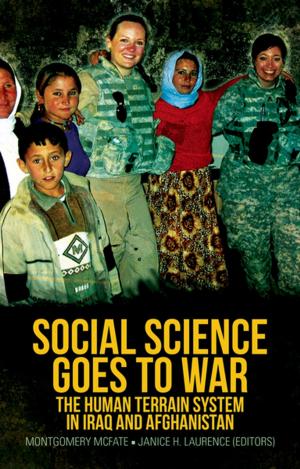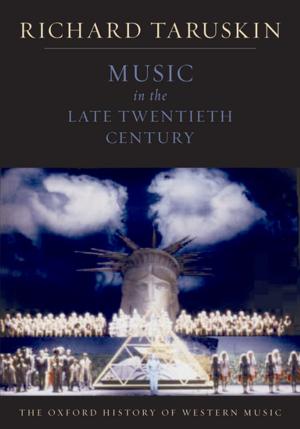Enemies Known and Unknown
Targeted Killings in America's Transnational Wars
Nonfiction, Social & Cultural Studies, Political Science, International, International Security| Author: | Jack McDonald | ISBN: | 9780190862633 |
| Publisher: | Oxford University Press | Publication: | May 15, 2017 |
| Imprint: | Oxford University Press | Language: | English |
| Author: | Jack McDonald |
| ISBN: | 9780190862633 |
| Publisher: | Oxford University Press |
| Publication: | May 15, 2017 |
| Imprint: | Oxford University Press |
| Language: | English |
President Obama was elected on an anti-war platform, yet targeted killings have increased under his command of the 'War on Terror'. The US thinks of itself as upholding the rule of international law and spreading democracy, yet such targeted killings have been widely decried as extra-judicial violations of human rights. This book examines these paradoxes, arguing that they are partially explained by the application of existing legal standards to transnational wars. Critics argue that the kind of war the US claims to be waging - transnational armed conflict - doesn't actually exist. McDonald analyses the concept of transnational war and the legal interpretations that underpin it, and argues that the Obama administration's adherence to the rule of law produces a status quo of violence that is in some ways more disturbing than the excesses of the Bush administration. America's interpretations of sovereignty and international law shape and constitute war itself, with lethal consequences for the named and anonymous persons that it unilaterally defines as participants. McDonald's analysis helps us understand the social and legal construction of legitimate violence in warfare, and the relationship between legal opinions formed in US government departments and acts of violence half a world away.
President Obama was elected on an anti-war platform, yet targeted killings have increased under his command of the 'War on Terror'. The US thinks of itself as upholding the rule of international law and spreading democracy, yet such targeted killings have been widely decried as extra-judicial violations of human rights. This book examines these paradoxes, arguing that they are partially explained by the application of existing legal standards to transnational wars. Critics argue that the kind of war the US claims to be waging - transnational armed conflict - doesn't actually exist. McDonald analyses the concept of transnational war and the legal interpretations that underpin it, and argues that the Obama administration's adherence to the rule of law produces a status quo of violence that is in some ways more disturbing than the excesses of the Bush administration. America's interpretations of sovereignty and international law shape and constitute war itself, with lethal consequences for the named and anonymous persons that it unilaterally defines as participants. McDonald's analysis helps us understand the social and legal construction of legitimate violence in warfare, and the relationship between legal opinions formed in US government departments and acts of violence half a world away.















